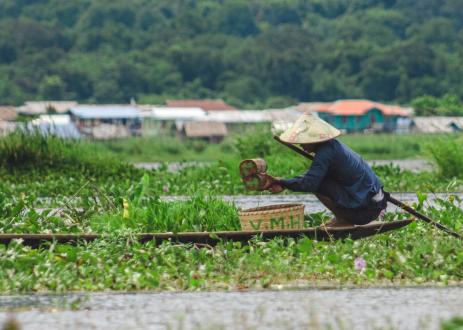Agricultural Subsidies, Poverty, and the Environment
Supporting a Domestic Reform Agenda in Developing Countries

Synopsis
What policies are needed so that reforms in agricultural subsidies in developed countries can translate into real benefits for poor farmers and for the environment in developing countries?
Executive Summary
What policies are needed so that reforms in agricultural subsidies in developed countries can translate into real benefits for poor farmers and for the environment in developing countries?
该政策说明分析了美国和其他发展国家农业补贴对环境和发展中国家贫困的影响。它为减少补贴而提出了一个理由,并提议一项政策改革议程,以帮助发展中国家利用这些减少,并将其农业部门变成可持续发展的工具。
Further, this Policy Note highlights the types of policies, laws, and programs that can affect sustainable agricultural development with or without an agreement by the World Trade Organization’s Doha Trade Round, specifically those measures that:
- Empower poor farmers.
- Integrate poverty alleviation and environmental goals.
- Promote sustainable agricultural practices that will protect ecosystems and their ability to provide for the farmers who depend on them.
- Promote better governance of the agricultural sector.
This Policy Note is part of the World Resources Institute’s ongoing series that outlines issues and provides recommendations relating to environmental markets, energy, climate, and trade. These recommendations are based on WRI’s independent analysis of biofuel policies, experience with developing and testing environmental markets, and our expertise in climate and trade issues.
We hope that you find the Notes informative and useful in helping define policies that promote environmental sustainability, rural vitality, and a healthy farm sector. Additional Policy Notes can be downloaded from /publication/policy-notes.
Projects
-

Land and Resource Rights
Visit ProjectWRI’s Land and Resource Rights project aims to ensure that rural people and the urban poor have secure rights over their land and natural resources.
Part of Environmental Rights
